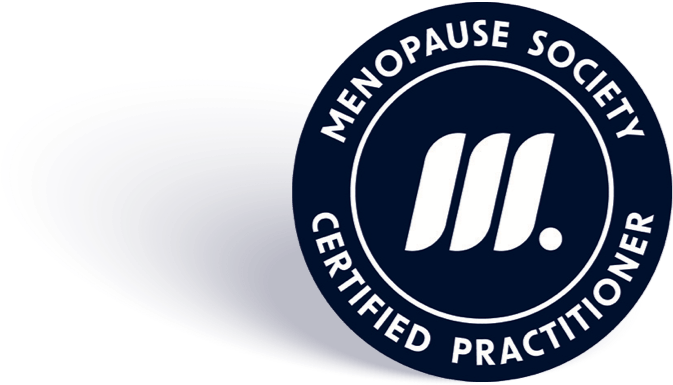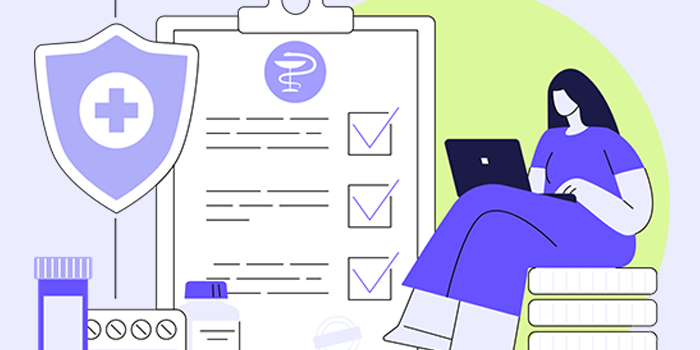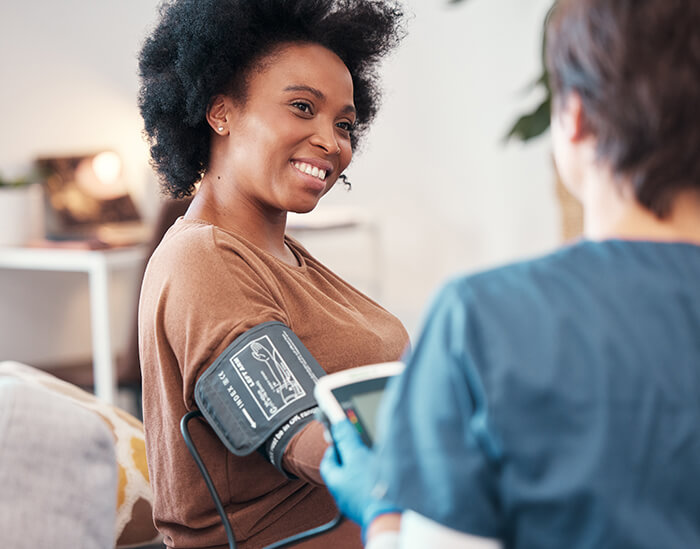Menopause Topics:
Hot Flashes
Most commonly experienced symptom of menopause.

Hot Flashes and Night Sweats
Hot flashes and night sweats, also called vasomotor symptoms, are feelings of warmth that can be associated with flushing and sweating. They are quite common during menopause, occurring in up to 80% of women and lasting a mean of 7 to 10 years. They may also contribute to sleep and mood issues that can negatively affect quality of life.
Hot flashes are characterized by a sudden, intense sensation of heat in the upper body—particularly the face, neck, and chest. Each hot flash episode typically lasts between 1 and 5 minutes and may be accompanied by sweating, chills, and anxiety. Some women can feel a rapid heartbeat at the same time. Night sweats are hot flashes that occur during sleep. Chills can also occur, resulting in shivering.
Hot flashes can range from mild and tolerable to severe and debilitating. Hot flashes that are mild may be experienced as a sensation of heat without sweating. With severe hot flashes, there can be enough sensation of heat and sweating to make a woman have to stop activity.
Risk Factors
Beyond ethnicity, certain other risk factors increase the likelihood of experiencing hot flashes. A higher level of abdominal fat has been shown to increase the likelihood of hot flashes in younger women and women earlier in the menopause transition. Both current and past cigarette smoking also increases the risk of hot flashes.
For women who undergo surgical menopause (removal of their ovaries before menopause), hot flashes often begin right after surgery. These women are more likely to have hot flashes than are women who experience menopause naturally, and their symptoms also tend to be more frequent and severe.
Treatments for Hot Flashes
Certain low-risk lifestyle measures and nonprescription strategies can help to manage hot flashes and night sweats. If hot flashes remain significantly disruptive despite using these approaches, then prescription hormone therapy or nonhormone prescription drugs can be considered:
- Weight loss
- Cognitive-behavioral therapy
- Clinical hypnosis
Other measures are sometimes encouraged or tried for hot flashes but have limited solid data available to evaluate their effectiveness—or they have failed to show significant benefits in clinical trials:
- Acupuncture
- Chiropractic interventions
- Cooling techniques, such as adjusting clothing or environmental temperature
- Dietary modifications
- Dietary supplements such as ammonium succinate, black cohosh, cannabinoids such as marijuana, chasteberry, dong quai, evening primrose, ginseng, Lactobacillus acidophilus, maca, milk thistle, omega-3 fatty acid, pollen extract, rhubarb, vitamin E, and wild yam (dioscorea)
- Exercise and yoga
- Mindfulness-based interventions
- Paced breathing
- Relaxation techniques
- Soy foods, soy extracts, and soy metabolite equol (S-equol)
- Trigger avoidance, such as alcohol, caffeine, spicy foods, or hot foods
That’s not to say that none of these measures have value. In particular, lifestyle measures such as a healthy diet, regular exercise, and stress management through relaxation techniques may play a vital role in chronic disease prevention and a woman’s overall health.
There are only two nonhormone medications approved by FDA to treat hot flashes. One is a low dose of paroxetine, an antidepressant called a selective serotonin-reuptake inhibitor. Another is fezolinetant, which belongs to the neurokinin B antagonist class, developed specifically to target hot flashes. In addition, other nonhormone medications for other health conditions have been used off-label to treat hot flashes because they were shown to have some benefit. These include
- Certain antidepressants
- Gabapentin
- Oxybutynin
Hormone therapy is FDA approved as a first-line therapy for relief of hot flashes. It’s shown to be the most effective treatment for bothersome hot flashes. In particular, the benefits particularly outweigh the risks for hormone therapy when used in early menopause to relieve hot flashes, night sweats, and sleep disturbances. For these vasomotor symptoms, estrogen therapy is given as pills, patches, sprays, gels, or as a vaginal ring. These products deliver estrogen throughout the body—known as systemic therapy. Systemic doses are absorbed into the bloodstream at high-enough levels to have significant effects in widespread areas, which is needed to treat hot flashes.
Frequently Asked Questions
Will my hot flashes return if I stop using hormone therapy?
About half of women will experience a return of hot flashes when stopping hormone therapy, at least temporarily. Gradually tapering the dose may be helpful, although this has not been proven. If hot flashes recur, therapy can be restarted if needed. Regardless of which medication is used and at what dose, treatment should be periodically re-evaluated to determine whether it is still necessary. In most women, hot flashes will ease over time.
Should I take an antidepressant for hot flashes even though I’m not depressed?
Antidepressants for hot flashes were tested in women who did not have depression, so it’s fine to use them even if you’re not depressed. They are often a good option for women who do not want to use or can’t use hormone therapy. In particular, talk to a healthcare professional about using antidepressants if you have bothersome hot flashes and have had breast cancer.
Videos & Podcasts
The Menopause Society is proud of its comprehensive video series for women and healthcare professionals on important midlife health topics.
View the entire video & podcast series
New FDA-Approved Nonhormone Option for Hot Flashes
Dr. Susan Reed
2023 Nonhormone Therapies Position Statement for Bothersome Menopause Symptoms
Dr Chrisandra Shufelt
Additional resources on this topic
/
Other menopause topics

Need help finding a certified menopause practitioner?
The Menopause Society’s website offers a searchable listing of healthcare professionals, including those who have earned the prestigious Menopause Society Certified Practitioner (MSCP) credential. Start your search for a certified menopause practitioner today.
Start your search for a certified menopause practitioner today.








